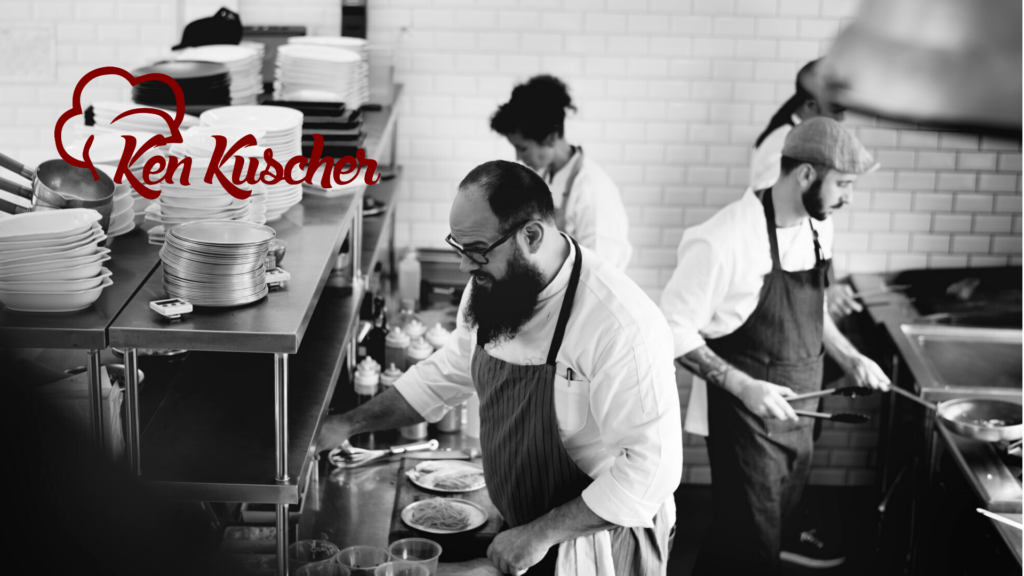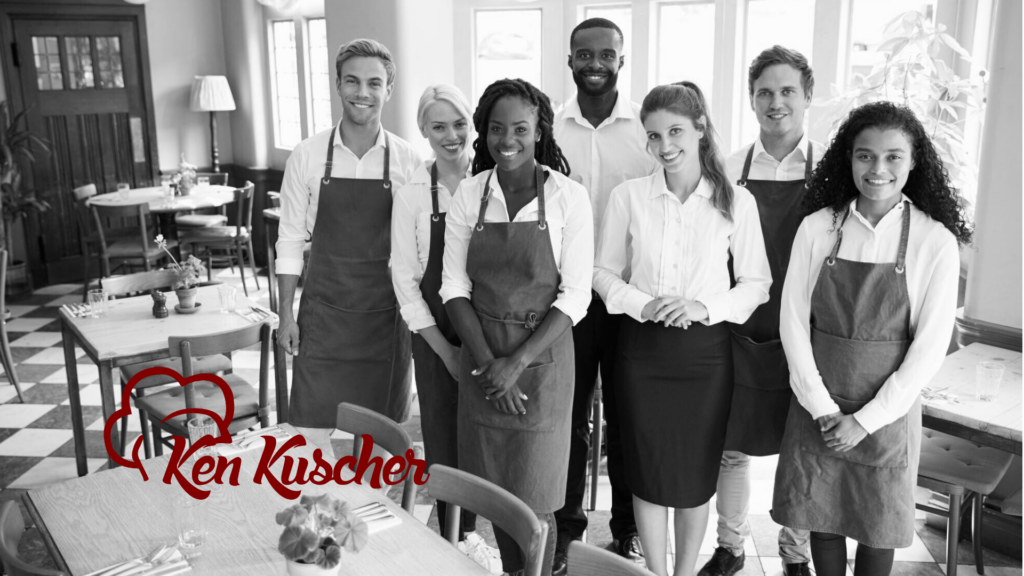The restaurant industry is no stranger to disruption. Between evolving customer expectations, economic shifts, and ever-changing food safety requirements, operators are under constant pressure to adapt. Now, one of the most significant game-changers isn’t on the menu — it’s in the back office.
Technology is radically reshaping how restaurants recruit, retain, and manage their workforce. From artificial intelligence to predictive analytics, digital tools are stepping in to help combat one of the industry’s most stubborn challenges: labor shortages.
For restaurant operators and professionals needing guidance or legal support around hiring practices and safety compliance, understanding these trends — and working with a food safety expert witness — can make all the difference.
The Evolution of Restaurant Recruitment
Traditionally, hiring in the restaurant industry relied on bulletin board ads, walk-in applicants, and word-of-mouth referrals. While effective in their time, these methods lack scalability and structure — especially when businesses need to onboard dozens or even hundreds of employees quickly for seasonal surges, grand openings, or multi-location expansion. Moreover, this approach often left room for inconsistency in vetting, training, and onboarding practices, increasing the risk of food safety incidents and labor disputes.
As consumer expectations grow, and compliance standards tighten, restaurants must move beyond manual hiring methods to remain competitive and protected.
Enter digital recruitment platforms, AI-driven screening tools, and applicant tracking systems (ATS) tailored to the hospitality sector. These tools centralize job listings, filter unqualified candidates, and even automate communications to reduce the risk of ghosting — a growing problem where applicants disappear mid-process.
Now, forward-thinking brands like Chipotle are using AI-powered virtual hiring assistants to screen and schedule interviews. Their conversational AI tool, Ava Cado, interacts with candidates in real-time, answering questions, assessing availability, and gauging qualifications based on preset criteria. The result? A nearly twofold increase in applicant flow, and a dramatic reduction in time-to-hire — from 12 days to just 4.
This isn’t just a time-saver — it’s a hiring revolution. And it’s changing how the industry thinks about labor pipelines, especially in high-turnover segments like fast-casual dining. Tools like Ava Cado empower managers to focus on human interactions — not paperwork — while maintaining consistency and documentation that is vital for legal defensibility and food safety oversight.
In a world where one staffing delay or oversight could snowball into operational chaos, technology gives restaurants a competitive edge. But it also raises questions about compliance, bias, and safety — questions best navigated with the support of a qualified food safety expert witness.
AI and Predictive Hiring: What’s Working
The key to this new hiring paradigm lies in predictive analytics — the science of using data to anticipate future behavior. In restaurant HR, this means leveraging historical hiring data, turnover trends, and performance benchmarks to make better staffing decisions.
By analyzing thousands of data points, AI systems can forecast seasonal labor shortages, identify which job posts yield the highest-quality hires, and even pinpoint “flight risk” employees before they exit. These insights are invaluable for restaurant operators who want to proactively reduce turnover — which, according to industry data, can cost upwards of $5,000 per hourly employee in recruitment, onboarding, and lost productivity.
More advanced platforms go beyond forecasting. They also recommend personalized retention strategies based on employee behavior. For example, if a system detects that an employee’s schedule has changed dramatically, or that they’ve received lower peer ratings, it can trigger an alert for a manager to step in with support — whether that’s additional training, a conversation about workload, or access to wellness resources.
And it’s not just corporate chains embracing this. Independent operators, too, are using platforms like Harri, Workstream, and Fountain to streamline labor planning and identify top talent. Some even integrate automated background checks, video interviews, and digital I-9 verification, allowing for a seamless and legally compliant hiring process from application to onboarding.
Of course, as restaurants embrace predictive technology, they must remain vigilant about ethical and regulatory compliance. AI can be a powerful ally, but without proper oversight, it may introduce bias or violate employment laws. That’s where a food safety expert witness comes in — not only to advise on food handling and sanitation policies, but to review hiring procedures for compliance with labor laws, OSHA requirements, and FDA food code training mandates.
The National Restaurant Association has spotlighted these AI-driven tools in recent reports, noting how they’re rapidly becoming a standard in modern restaurant operations. According to their findings, restaurants that successfully implement predictive hiring see a marked improvement in labor cost control, employee satisfaction, and guest experience.
Ultimately, predictive analytics helps restaurants build stronger teams — not just faster, but smarter. And in an era where labor efficiency and food safety go hand-in-hand, this technology offers a powerful way to future-proof your workforce strategy.

Retention That Works: Technology Meets Humanity
Retention has always been one of the restaurant industry’s biggest challenges. With high turnover rates — often exceeding 70% annually in quick-service restaurants — operators can find themselves locked in a never-ending cycle of hiring, training, and losing staff. This revolving door not only drains financial resources but also disrupts consistency, morale, and, critically, food safety performance.
While technology has brought unprecedented efficiencies to recruitment, it’s also redefining how restaurants retain their best talent. The most forward-thinking operators are moving beyond reactive strategies and using technology as a proactive retention tool — one that supports employees as people, not just as labor.
- Flexible Scheduling & Work-Life Balance
Today’s workforce, especially Gen Z and Millennials, demand flexibility. They’re more likely to stay with employers who respect their time and accommodate life outside of work. Cloud-based scheduling apps like 7shifts, HotSchedules, and Sling offer team members real-time access to schedules, shift swaps, and time-off requests — all from their phones.
This autonomy improves work-life balance, reduces burnout, and fosters loyalty. Managers also benefit by filling gaps faster and avoiding last-minute no-shows, improving shift stability and customer experience.
Additionally, for restaurants focused on maintaining consistent food safety practices, flexible scheduling tools make it easier to ensure proper staffing with certified team members during critical shifts, minimizing the risk of compliance issues or safety lapses.
- Ongoing Training and Career Pathing
Employee development is no longer a bonus — it’s an expectation. Team members want to feel like they’re growing, not just grinding. That’s where technology-driven training platforms come in. Tools like PlayerLync, Wisetail, and LearnUpon allow restaurants to provide bite-sized, mobile-friendly training modules that keep employees engaged without pulling them off the floor for hours.
These platforms are particularly powerful for maintaining up-to-date food safety certifications. When staff members complete modules on proper food handling, cross-contamination prevention, or allergen protocols, their progress is logged and easily auditable — a major asset if your restaurant faces inspection or litigation.
Beyond compliance, smart operators are using these systems to build clear internal career paths. By showing team members exactly what skills or certifications are needed to move up, restaurants foster a culture of growth. This not only motivates staff to stay longer, but also reduces the need for costly external hires.
And remember: documentation is key. In the event of a lawsuit or health department investigation, a food safety expert witness can use this training data to show that the restaurant followed all necessary protocols, potentially protecting the business from liability.
- Wellness, Mental Health & Emotional Intelligence
In today’s labor market, benefits that support mental health and well-being are no longer considered perks — they’re essentials. The pandemic spotlighted the emotional toll of foodservice work, and employers who fail to recognize that risk falling behind.
Companies like Chipotle are leading the charge by offering access to mental wellness apps like Calm and Headspace, along with telehealth resources and employee assistance programs. These initiatives send a clear message: “We care about your well-being.” And that message pays off — with higher engagement, reduced turnover, and even improved food safety performance due to lower stress levels.
In high-pressure environments like kitchens and front-of-house operations, mental fatigue can easily lead to mistakes — from mislabeling allergens to skipping handwashing protocols. Supporting staff holistically helps ensure that employees remain alert, committed, and safety-conscious.
For operators wondering whether their current wellness efforts are enough, a food safety expert witness can help evaluate risk areas tied to staff performance, stress, and procedural adherence, offering both guidance and litigation-ready expertise.
- Incentives & Recognition Programs
Digital tools have also revolutionized how restaurants recognize and reward their teams. Platforms like Bonusly and Snappy allow managers to issue micro-incentives, public praise, and peer-to-peer shoutouts — all within a centralized system. These small moments of appreciation can have a massive impact on morale.
Chipotle’s crew bonus program is a perfect example. It awards teams based on performance metrics — such as productivity, food safety, and guest satisfaction — creating a sense of collective accountability and pride. This strategy not only drives retention but also ensures food safety stays top-of-mind.
For independent operators, even simple digital recognition (like a Slack-based shoutout or a mobile leaderboard) can create a more positive workplace culture — which directly correlates with longer tenures and better food safety outcomes.
- The Bottom Line
Retention isn’t just about pay or perks. It’s about creating an environment where people feel valued, supported, and set up to succeed. Technology can help build that environment — but it must be implemented with intention.
By investing in scheduling flexibility, career development, mental health, and recognition, restaurants can reduce costly turnover and improve the day-to-day experience of their teams. At the same time, these systems create trackable data trails that can protect operators from legal or regulatory risks.
When combined with expert oversight from a food safety expert witness, operators can be confident that their retention strategies not only build loyalty — they build legal resilience and operational excellence.

Legal Ramifications: Hiring Technology and Compliance
As recruitment becomes increasingly digital, new legal questions arise:
- Are AI hiring tools creating unintentional biases?
- Is employee data being collected ethically?
- Are training records and food safety certifications being properly documented?
This is where a food safety expert witness becomes invaluable. These professionals help evaluate whether hiring and training practices adhere to industry safety standards, especially during litigation.
For example, a case involving a foodborne illness outbreak may be traced back to improper staff training or certification — and a witness with deep operational knowledge can provide the legal insight to prove or refute these claims. According to SHRM, oversight of AI-based recruitment is becoming more critical as more companies automate decisions that impact compliance and liability.
Need Help? We’re Here for You
When it comes to food safety, there’s no room for guesswork — especially in legal matters. Whether you’re navigating a compliance issue, facing litigation, or preparing for inspection, having the right expert on your side can make all the difference.
Ken Kuscher is a trusted food safety expert witness and certified food handler consultant with decades of real-world industry experience. He provides the credible, litigation-ready insight attorneys and restaurant operators rely on when the stakes are high.
Ken offers:
- Expert witness testimony for foodborne illness cases, training disputes, and safety violations
- In-depth compliance reviews of food handling practices and operational protocols
- Certified food handler training tailored to FDA Food Code and local health regulations
If you’re looking for clear, defensible guidance grounded in industry standards — you’re in the right place.
Protect your business. Strengthen your case. Partner with an expert who knows the kitchen and the courtroom.
Reference: https://www.nrn.com/
Florida Food Handler Certificates
Avoid fines by ordering your Florida Department of Business and Professional Regulation-approved Food Worker Program certificates today. They’re available for just $4 each. Program #5552749.
Place your order online here. For additional information, you can call (561) 703-7196.
As a Rule 702-qualified expert witness with nearly 40 years of experience in food safety, sanitation, and regulatory compliance, I provide expert testimony, case analysis, and legal consultation for attorneys, businesses, and matters involving regulatory agencies.
***Please note that the insightful and engaging content provided on our platform is crafted by our dedicated Marketing Department’s content writing team. While Ken Kuscher is the esteemed figure and expert within our industry, the articles and blog posts available are not personally authored by Ken.





